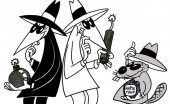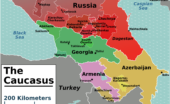Re Ian Bremmer 'Could third-party candidates upend the 2024 US election?' 3 April The current political movement in the USA…
Wednesday Night #1708
Written by Diana Thebaud Nicholson // November 26, 2014 // Wednesday Nights // 1 Comment
When FDR moved Thanksgiving: The executive action that tore a nation apart
We have a couple of rants this week – one on the disgraceful – and incomprehensible – treatment of Canadian veterans, and the other on immigration policies in Canada which seem to be in need of a complete overhaul rather than the recent piecemeal attempts that no-one seems to like. Not that we recommend a Royal Commission – we long for a pool of Elders to review and revise such thorny issues.
We will leave the furor in the U.S. for now, simply noting that the Republican threats to impeach President Obama for his use of executive orders are downright silly [Presidents Eisenhower, Ford, Reagan, Bush and Bush all altered immigration law by executive action, yet none were impeached]. Opinions are sharply divided, but given the amount of noise coming from the GOP, we think it only fair to counter with Obama’s Immigration Plan Is Both Good Policy and Remarkably Shrewd Politics
“The whole thing is politically pretty brilliant. It unifies Democrats; wrecks the Republican agenda in Congress; cements the loyalty of Hispanics; and presents the American public with a year of Republican candidates spitting xenophobic fury during primary season. If you’re President Obama, what’s not to like?”
We are delighted to see Jean Doré is finally receiving the recognition he so richly deserves for the many changes he brought to Montreal as Mayor, although it is distressing that the tributes are in reaction to the terrible news of his diagnosis of pancreatic cancer. The piece by Linda Gyulai concludes “The arc of Doré’s career only reaches across a city, not the planet as was the case for his hero, Mandela. But within his small territory as mayor, Doré left a mark.”
This provides a nice bridge to Andrew Coyne’s recent piece,
Coyne: Where are the great leaders of today?
Part of the greatness we attribute to the leaders who went before us is that their efforts resulted in, well, us: liberal, democratic, the natural endpoint of history. Viewed from that perspective, the path that led us here glows with significance, and those who opened that path seem accordingly of enormous consequence. But it only seems that way if you start from the assumption that we, and the civilization we have created, are of some historic import. People hundreds of years from now may not agree. Indeed, they may have forgotten all about us.
My own pet explanation for the seeming smallness of today’s leaders is … the problem is the pictures got big. Looking back at the great colossi of history, one is constantly struck by how small a world they bestrode. The England of Queen Elizabeth, for example, the England of Shakespeare, Raleigh and Drake, had a population of less than four million, barely a tenth of our own. By the time of the Civil Wars, when titans like Charles I and Cromwell were roaming about, it had risen to 5.3 million — still less than that of the Greater Toronto Area.
Brett House makes his début on Huffington Post writing that Canada Needs to Get Serious About Development Finance and pointing out that “Canada is late to the development finance party.” Few of us likely noted that in May, Federal International Development Minister Christian Paradis was named chair of the steering committee for the joint WEF-OECD “Redesigning Development Finance” initiative which is charged with identifying new ways to expand the pool of capital available for economic development in poor countries. This has no doubt prompted the semi-sudden flurry of activity on the topic in the minister’s office.
We are sorry that U.S. Defense Secretary Chuck Hagel is resigning. Despite nice words on both sides, it seems evident that he was forced out after expressing frustration over being outgunned by White House policy nerds – apparently the clash came after he raised questions about Obama’s strategy toward Syria and the administration’s failure to clarify its stand on Bashar al-Assad. Very reasonable questions, in our view. As the New York Times editorial A Problem Beyond Mr. Hagel points out: “The defense secretary resigned, but the Obama administration’s core military problem is a national security policy that has been too incoherent and shifting.”
On the Russian front (as it were), there is discouraging news from Germany as Angela Merkel admits hitting a diplomatic dead-end with Putin, despite best efforts in Brisbane. The linked Reuters article supplies much good background. A very different view of Putin-as-world statesman (the only grown-up in the room?) is offered by Patrick L. Smith in The New York Times doesn’t want you to understand this Vladimir Putin speech — The Russian leader delivers an important foreign policy address we should consider. We have posted Guy Stanley’s thoughts below and encourage you to read and comment on them.
To add to the general unease, the Washington Post signals Finland feeling vulnerable amid Russian provocations and offers a map of ‘incidents’ involving Russian and NATO forces.
Our Wednesday Night Davids (Jones and Kilgour) have a good debate on Putin flexes his muscles
David (Jones) It’s best to ignore the Russian leader’s manoeuvring
vs
David (Kilgour): The West must continue to stand up to the Russian bully




One Comment on "Wednesday Night #1708"
Re Patrick L. Smith on Putin
Quite a lot of material in the transcript including the Q&A after the speech. Smith seems a classic IHT writer – interested in global trends with expertise in various of them. The rise of North East Asia (Japan) seems to be one of these, as well as regular commentary on European affairs. His comments on the US foreign policy cliques echo those of Henry the K on Charlie Rose a while ago, basically making the same points about Russia. As for Putin’s speech, it probably should be studied rather closely, especially from the Russian transcript. In the English version, I saw nothing very new. Same old Russian position about the need to respect orderly procedures, international law, and within a coherent framework. US policy under Bush senior vis a vis Kohl and Gorbachev exemplified those virtues and thus an immensely complex problem – German reunification – was settled peacefully. The subsequent US leaders had no such deft touch, least of all GW whose mistakes Putin described fairly accurately I would say.
On the other hand, there was little for the West to work with in Putin’s history lessons about the S.E. Ukraine region. The 1994 Ukraine Protocol was not mentioned although some of the pre-crisis talks he referred to may have been in reference to it. Indeed, Putin gave the impression he was reasonably content with outcomes on that file so far despite the sanctions and the inreasing separation between Russia and Europe under US pressure (P quoting Joe Biden to back up the point about pressure). No mention of regional anxieties, in particular no mention of NATO’s rallying – or the increased Russian use of military demonstration.
His comments also covered the middle east and the rise of I’État Islamique (EI) – for which he holds the US primarily responsible among the powers. He only quietly hinted that maybe Russian views of Syria and the M.E. were a more accurate portrait of the forces at work. He offered nothing old or new with respect to cooperation, although Russia is a member of the P-5 group negotiating with Iran.
Are the US and Russia operating in different moral universes? Putin presented himself as a staunch supporter of historic European values of lawful order and in particular of predictability in international dealings, claiming all the while that the US had abandoned both. Many in the audience seemed to take him at his word. He avoided every opportunity to sketch a broader picture of world order – the title of the Conference – other than to make his comments about US policy, defend the Russian role in the Ukraine events, and claim that his priority was Russian economic development and institutional modernization – an echo of Medvedev’s preoccupations. His actual priority seems to me to have been to justify his opposition to colored revolution of any kind and remind us that the history of Russia’s “near abroad” remains an important consideration that should be taken into account in every subsequent analysis. I found it a convincing performance yet disappointing at the same time. Russia badly need friends in the West and actually has quite a few, especially both France and Germany – but Putin offered them next to zero at this event. Metternich, whose vision of diplomacy and foreign affairs had much in common with that of Putin, had considerably more aplomb and was able to keep at bay the likes of Castlereagh and Talleyrand. But then M was a sophisticated Rhinelander at ease with the complexities of Austria and its empire, similar in scope to Russia’s polyglot demographics. Putin is far more popular at home than M ever was – but like all tyrants, perhaps justifiably nervous whenever they leave home for long.
Thanks for sending this one. The Valdai group was a new one for me. Guy Stanley